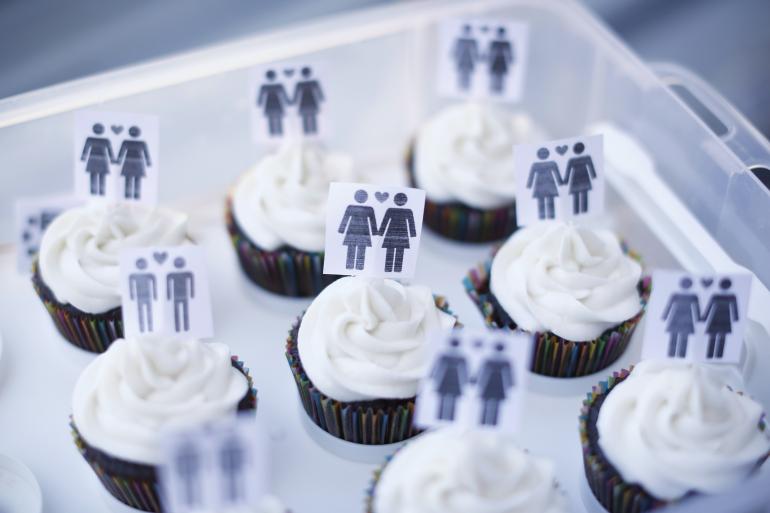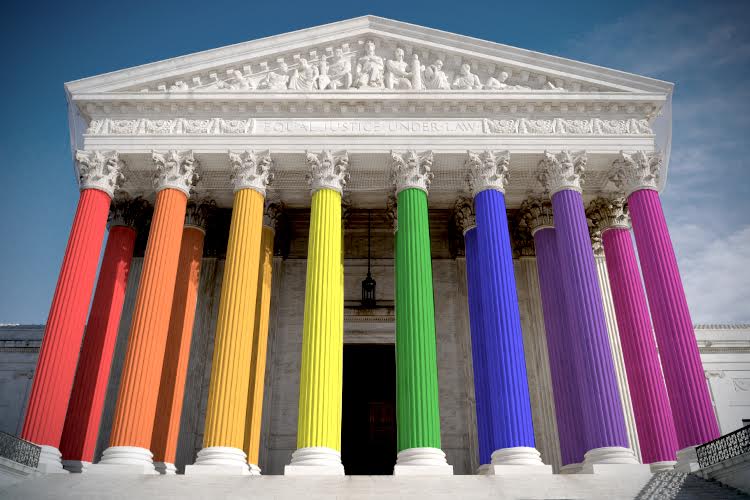
By: Samantha Cleare
The topic of gay marriage is more heated than ever.
The number of same-sex households in the United States grew by 80.4 percent from 2000-2010, which catapulted the demand for legalizing gay marriage into the societal mainstream. Year to date, 17 states have legalized same-sex marriage. In addition to the United States, 17 other countries and regions of Mexico have legalized marriage between gay couples. On Feb. 4, 2014, the Scottish Parliament overwhelmingly passed legislation that legalized same-sex marriage. Also, French President François Hollande, Brazil’s National Council, and the New Zealand Parliament all signed into law during 2013 legislation that allows same-sex marriage.
While other developed countries are becoming more and more progressive on gay rights issues, segments of the U.S. population are backpedaling on these same rights. On Feb. 11, 2014, Kansas’ House of Representatives passed a bill that allows businesses and government employees to deny services to gay couples based on their religious principles. Bill 2453 is titled “An act concerning religious freedoms with respect to marriage.” Cloaked in the guise of “religious liberty,” this Trojan horse of discrimination unjustly targets gay couples. According to the equal protection clause of the 14th Amendment, all citizens of the United States shall be treated fairly. Under the 14th Amendment, the DOMA case established that sexual orientation as a protected class. Why do same-gender couples not deserve to be treated so?
House Bill 2453, or the “Anti-Gay Segregation Bill,” legalizes separating homosexual couples from the general public. Under the bill hotels are granted the right to deny service to gay couples. Stores, restaurants, and movie theaters can refuse same-sex partners based on the owners’ discretion. Police officers can ignore calls for help from same-sex couples. Hospitals can refuse to treat gay couples. Under House Bill 2453, same-sex partners are banned from public arenas, parks, and pools. And to add insult to injury and stinking of unconstitutionality, the victims of these injustices will not be allowed under the law to sue for discrimination.
The Kansas bill’s discriminatory restrictions do not end here. While lawmakers claim that the legislation only targets gay couples, the bill lacks protection for gay individuals. For example, an employer can still choose to not hire a homosexual worker if the applicant’s sexuality violates the manager’s religious views.
Kansas’ conservative Christian governor, Sam Brownback along with the state’s overwhelmingly Republican House, fear a gay marriage ruling similar to Oklahoma’s recent failed attempt to ban same sex marriage. By taking a step away from advancements concerning gay rights, Kansas’ legislatures hope to counteract other states’ gay rights improvements. The Republican-dominated House passed the bill with a vote of 72-49, and it is now making its way to the state Senate.
An alternative perspective is that this legislation would heighten discrimination and cause homosexual citizens to feel further isolation within society. State Chairwoman Sandra Meade stated that that Kansas’ government wants to keep its gay population from marriage’s tax benefits. Regardless of the rhetoric that the people’s elected representatives are spewing, Meade states that, “Kansans across the state are rightly appalled that legislators are spending their efforts to pass yet another piece of legislation that seeks to enshrine discrimination against gay and lesbian people into law.”
Opponents of this bill, such as the Kansas Chamber of Commerce, believe that the bill would cause costs to go up in business. According to Mike O’Neal, the president of the chamber, businesses were “not interested in getting into these guessing games as to someone’s intent and whether a strongly held religious belief is legitimate or not.”
Kansas Senate Judiciary chairman Jeff King explains that the “anti-gay bill is dead.” The Senate states that the bill would not pass and King believes that the bill won’t even get a second glance. On the other hand, hearings will be conducted and new bills concerning “religious freedoms” could arise; Representative Steve Brunk states that the issue will not go away and “as the topic progresses, we’ll refine the language.”
While the Kansas bill casts a shadow on this decade’s victories against bigotry, other areas of the country are shedding light on intolerance. Colorado’s government ordered a baker to stop discriminating against same-sex couples after he refused to make a cake for a gay couple’s wedding. The state of Virginia ended its ban of same-sex marriage. This July, a gay couple in Virginia was denied the right to be recognized as a legally married couple. The couple was married in and had raised a 14-year-old daughter in California; the couple desired legal recognition from Virginia’s government. A federal judge ruled that the marriage ban was unconstitutional, making Virginia the first southern state to have its voter-approved prohibition overturned. Virginia and other states join the fight against inequality, attempting to lift bans against gay marriage.
The gay civil rights movement, a liberating revolution that began with the 1969 Stonewall riots, continues, even in the face of adversity like Kansas’ recent bill. “We, the people of the United States,” encompass every man and woman, without selectivity due to sexual identity. Infringing upon a group of citizens’ rights destroys the foundation of freedom that the United States aims to promote.

